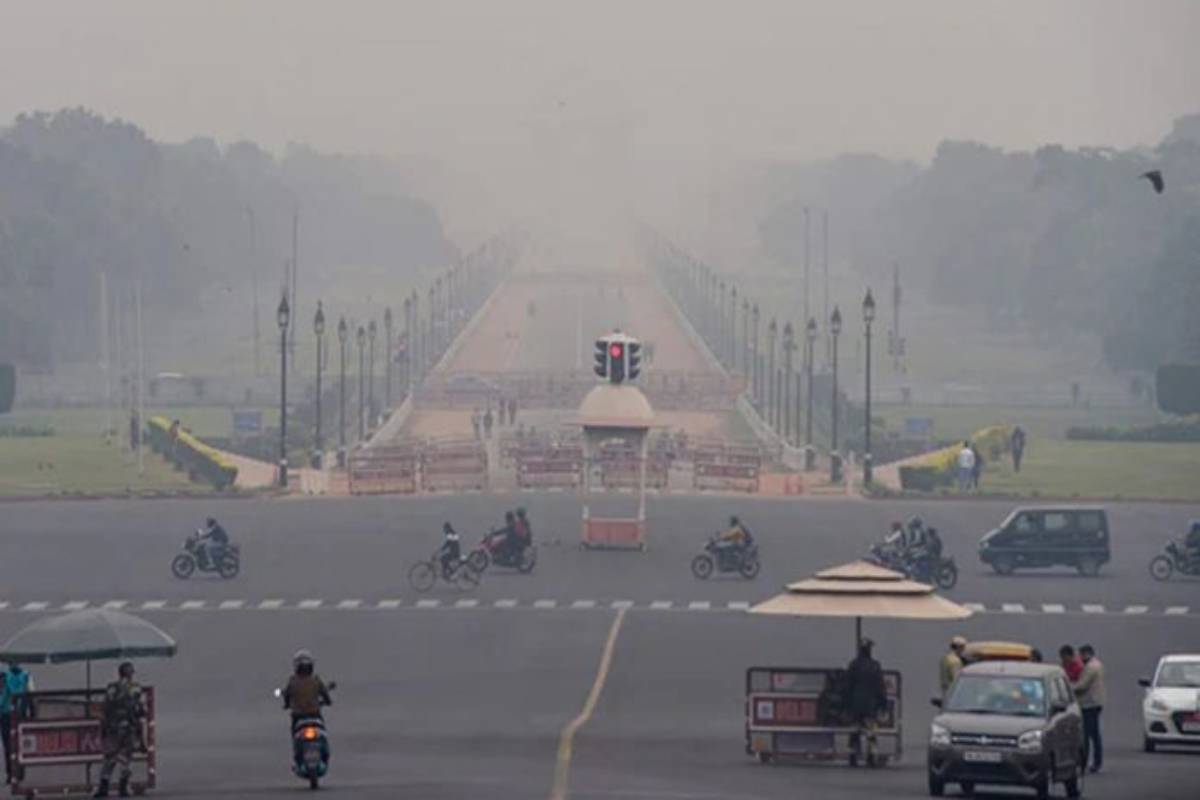DFS headquarter to be revamped with Rs 125 crore: CM Rekha Gupta
Chief Minister Rekha Gupta said on Tuesday that the headquarters of the Delhi Fire Services would be upgraded into a hi-tech building as per the requirements of the present day.
The air quality in Delhi-NCR continued to be in the ‘very poor’ category as a layer of smog engulfed the region in the morning hours.

Delhi pollution. (Representational image /File)
The air quality in Delhi-NCR continued to be in the ‘very poor’ category as a layer of smog engulfed the region in the morning hours.
As per the Central Pollution Control Board (CPCB), at 7:30 a.m. the average air quality index was recorded at 328 in the national capital. While other cities in the Delhi-NCR region also recorded high pollution levels — Faridabad at 206, Gurugram at 195, Ghaziabad at 252, Greater Noida at 248 and Noida at 267.
Advertisement
The Air Quality Index (AQI) had improved to the ‘poor’ category on Saturday due to some wind flowing across the belt. However, it again slipped to the ‘very poor’ level on Sunday and continued to remain so on Monday morning.
Advertisement
Various areas in the national capital city recorded ‘very poor; air quality, as per the National Air Quality Index. The worst areas included Anand Vihar with an AQI of 357, Ashok Vihar with 361, Wazirpur with 362, Jahangirpuri with 366 and Najafgarh with 325.
The IGI Airport (T3) recorded an AQI of 316.
The air quality in Noida (Uttar Pradesh) was recorded to be in the ‘poor’ category on Monday morning with several areas seeing AQI between 250 and 299. Some areas in the Gurugram (Haryana) witnessed ‘poor’ air quality while some were in the ‘very poor’ category.
An AQI between 0-50 is considered good, 51-100 is satisfactory, 101-200 is moderate, 201-300 is poor, 301-400 is very poor, and 401-500 is severe.
The air pollution levels in Delhi-NCR are likely to rise in the coming days with stubble burning and firecrackers being major contributors. The absence of favourable wind conditions is also contributing to the rising levels.
The region has been grappling with air pollution for the past few days and a thick blanket of smog is visible. According to the CPCB, the AQI reached hazardous levels on Sunday morning touching 400 in areas such as Anand Vihar, Mundka, and Bawana. According to the CPCB data, Delhi’s 24-hour average Air Quality Index (AQI) was recorded at 355 on Sunday at 4 p.m.
On October 22, the Commission for Air Quality Management (CAQM) ordered the implementation of Stage 2 emergency measures under the Graded Response Action Plan (GRAP) to curb the city’s air pollution.
Under this phase of GRAP, additional efforts focus on tackling dust pollution and limiting emissions from diesel generators, a move aimed at curbing further deterioration. Authorities deploy mechanical and vacuum road sweepers, conduct water sprinkling operations on key roads, and intensify inspections at construction sites to enforce strict dust control measures.
Advertisement